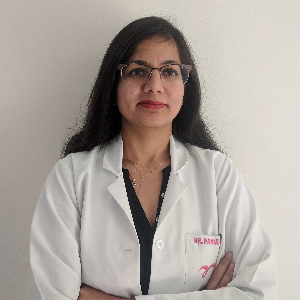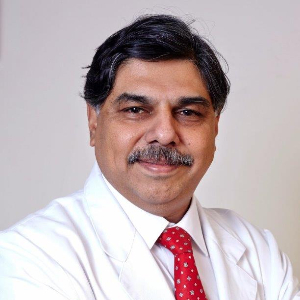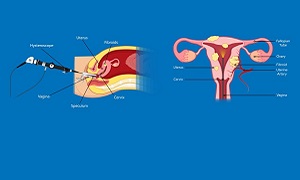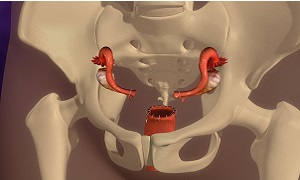Best Doctors in India for Menorrhagia (Heavy Menstrual Bleeding) Treatment
- Obstetrician & Gynaecologist, New Delhi, India
- Over 30 years’ experience
Profile Highlights:
- With around 30 years of experience, Dr Geeta Chadha is one of the leading gynecologists in Delhi. She has worked at Indraprastha Apollo Hospitals for around 22 years. Earlier she worked as a gynecologist at Kolmet Hospital as well as Sharma Nursing Home in New Delhi.
- Dr. Geeta Chadha has multiple expertise such as minimally invasive surgery like organ-preserving in women with benign gynae conditions plus infertility and high-risk obstetrics.
- Sr Consultant Doctor in Obstetrics & Gynaecology, Gurugram, India
- Over 30 years’ experience
Profile Highlights:
- Dr. Manavita Mahajan has been a practicing obstetrician & gynecologist in Gurugram for the last 30 years.
- Known for being a strong proponent of safe motherhood practices, Dr. Mahajan has worked to implement these practices in her hospital practice as well. She has also been a speaker and faculty on gynecological laparoscopy at several national conferences because of her laparoscopic surgical skills.
- Dr. Mahajan is also a trainer and faculty in various educational programs.
- Obstetrician & Gynaecologist, Gurugram, India
- Over 42 years’ experience
Profile Highlights:
- Dr. Suneeta Mittal is a renowned name in the field of obstetrics & gynecology who has done national as well as international research in women’s health leading to the introduction of emergency contraception & Medical abortion in India.
- Previously, Dr. Suneeta Mittal has served as a professor as well as head of the department of obstetrics & gynecology at All India Institute of Medical Science, New Delhi.
- She has multiple areas of expertise, such as infertility, adolescent reproductive health, endocrinological disorders, laparoscopic and hysteroscopy surgeries, as well as high-risk pregnancies.
- IVF Specialist & Gynaecologist, Gurugram, India
- Over 30 years’ experience
Profile Highlights:
- Dr. Nandita Palshetkar is one of the best and leading IVF specialists in India with expertise in all kinds of infertility treatment.
- She along with Dr. Hrishikesh Pai is responsible for starting Assisted Laser Hatching in India in 1998 and also delivered the first laser hatching twins in the country.
- With training in IVF and Micromanipulation from the University of Ghent, Belgium, Dr. Nandita Palshetkar has helped more than 25,000 couples to start a family. She along with her team of experts performs more than 3000 ART cycles every year.
- IVF Specialist & Gynaecologist, New Delhi, India
- Over 20 years’ experience
Profile Highlights:
- Dr. Parul Katiyar is a well-known Obstetrician and Gynecologist in India with expertise in Reproductive medicine and the management of infertility.
- She has close to 2 decades of experience in gynecology and obstetrics and over a decade of experience in infertility and IVF. She provides services for the management of primary and secondary infertility in couples.
- She is experienced in all types of assisted reproductive techniques and has been part of and has assisted in more than 3000 ART cycles of all forms for patients from various parts of the world.
- IVF Specialist & Gynaecologist, Gurugram, India
- Over 35 years’ experience
Profile Highlights:
- Dr. Hrishikesh Pai is a highly accomplished gynecologist and obstetrician in India and a leading IVF specialist in the country.
- He has set up several IVF centers all across the country and is associated with several hospitals as the head of the IVF department in collaboration with Bloom IVF Group.
- Dr. Hrishikesh Pai started the first Assisted Laser Hatching unit as well as the first micromanipulation procedure at Bloom IVF. He also introduced several other fertility treatment procedures and services such as Oocyte freezing and ovarian tissue freezing for patients with cancer.
- He holds an extensive experience of 35+ years in the field of IVF and fertility treatment and has helped hundreds of couples conceive and start a family.
- IVF Expert & Gynecologist, New Delhi, India
- Over 20 years’ experience
Profile Highlights:
- Dr. Kaberi Banerjee is a renowned Gynecologist in Delhi and one of leading infertility and IVF specialists in India.
- Along with her team of embryologists and experts, Dr. Banerjee has helped in over 10000 pregnancies through ART (Assisted reproductive techniques).
- She received her training in IVF and fertility treatment from the renowned Guys and St Thomas Hospital in London and also served as the Clinical Fellow at the Hospital for a year.
- IVF Specialist & Gynaecologist, Hyderabad, India
- Over 10 years’ experience
Profile Highlights:
- Dr. Lakshmi Chirumamilla is a Gynecologist and Obstetrician based out of Hyderabad and specializes in all types of Assisted Reproductive Techniques (ART).
- She has been part of various infertility clinics in the UK as an Infertility Specialist and is also a trainer for assisted reproduction, IUI, embryo transfer, and the management of infertile couples accredited by British Fertility Society.
- Dr. Chirumamilla has completed her certificate courses in assisted reproduction and infertility under the aegis of the British Fertility Society as well as the Royal College of Obstetricians and Gynecologists.
- IVF Specialist & Gynaecologist, New Delhi, India
- Over 22 years’ experience
Profile Highlights:
- Dr. Sunita Arora is a leading infertility specialist in New Delhi who specializes in IUI, IVF, laparoscopies, hysteroscopies, and repeated IVF failure cases
- After completing her education, she joined the Department of Obstetrics and Gynecology, at Govt Medical College as a consultant. Later she moved to Mount Sinai Hospital, New York, from where she received her training in IVF and Reproductive Medicine.
- IVF Specialist & Gynaecologist, Gurugram, India
- Over 20 years’ experience
Profile Highlights:
- Dr. Meenu Handa is a gynecologist and IVF specialist, who serves as the Unit Head of the Fortis Bloom IVF Centre at Fortis Memorial Research Institute in Gurugram.
- She specializes in multiple areas which include male infertility, recurrent IVF specialties, intracytoplasmic sperm injection, and endoscopic fertility surgeries.
Best Hospitals in India for Menorrhagia (Heavy Menstrual Bleeding) Treatment
Rela Hospital, Chennai
- City: Chennai, India
Hospital Highlights:
- RIMC is a multi-specialty hospital in a sprawling area of 36 acres located in Chromepet, Chennai, Tamil Nadu, India.
- The facility has 450 beds including 130 critical care beds, 9 operating rooms, modern reference laboratories and radiology services, and is conveniently located near road, rail and air transportation.
- RIMC is led and managed by world-renowned physicians committed to healthcare.
- RIMC offers the broadest range of clinical care, education, and research. The hospital offers state-of-the-art technology and modern treatment facilities designed to provide health care at an affordable cost.
- Rela Institute is driven by patient needs, comfort and confidence.
CARE Hospitals, Hyderabad
- City: Hyderabad, India
Hospital Highlights:
- CARE Hospitals were established in the year 2000, by CARE Group.
- The multispecialty hospital has 435 beds, including 120 critical care beds, with an annual inflow of 180000 outpatients and 16,000 in-patients.
- The hospital provides specialty medical services in Cardiology, Cardiothoracic Surgery, Pediatric Cardiology, Pediatric Cardiothoracic Surgery, Neurology, Neurosurgery, Nephrology, and Urology.
- The hospital has the first dual source, 128 slice CT scanner (for high precision cardiac imaging) – the first of its kind in south India.
- The hospital offers a wide range of accommodation facilities for the convenience of its varied patient base, ranging from general wards to super deluxe rooms.
Fortis Hiranandani Hospital, Mumbai
- City: Mumbai, India
Hospital Highlights:
- Fortis Hiranandani hospital was established in 2007.
- The hospital is an advanced tertiary care, multi-specialty hospital equipped with 149 beds.
- The hospital is equipped with a super ICU to provide emergency medical care to critically ill patients.
- The hospital is NABH accredited.
- The critical care facility in the hospital is augmented with the state-of-the-art facilities that facilitate speedier diagnosis and efficient monitoring.
- The hospital provides specialty medical services in cardiology, orthopedic science, pediatric science, neurology, diabetic care, urology, nephrology, ENT, obstetrics, gynecology, cosmetic surgery, bariatric surgery, neuro and spine care.
Fortis Hospital, Anandpur, Kolkata
- City: Kolkata, India
Hospital Highlights:
- Fortis Hospital, Anandapur, Kolkata is a world-class super-speciality equipped with the latest technologies in the medical world.
- The hospital is NABH accredited.
- This state-of-the-art facility specializes in cardiology and cardiac surgery, urology, nephrology, neurosciences, orthopaedics, digestive care, emergency care and critical care.
- The hospital, governed by integrated Building Management System (IBMS), has a pneumatic chute system, for quick vertical and horizontal transportation between floors, facilitating speedy transfer of patient specimens, documents, reports, and medicines to the concerned departments.
- The hospital also has a nephrology department with over 28 advanced dialysis units.
Fortis Hospital Banerghatta, Bengaluru
- City: Bengaluru, India
Hospital Highlights:
- Fortis Hospital Bannerghatta, Bengaluru was established in 2006.
- The hospital is a 276 bedded multi-specialty tertiary care facility.
- The hospital specializes in cutting-edge medical technology and dedicated patient care services.
- The hospital is equipped with state-of-the-art technologies like trans-radial angioplasty, trans-abdominal cardiac surgery, and computerized TKR navigation surgery.
- The hospital provides specialty medical services in cardiology, cardiac surgery, orthopedics, neurology, neuro-surgery, GI, and Minimal Access Surgery (MAS).
Gleneagles Global Hospital, Parel, Mumbai
- City: Mumbai, India
Hospital Highlights:
- Gleneagles Global Hospital The 450-bed facility comprises of 17-stories, housing state-of-the-art infrastructure, and advanced medical care facilities.
- The hospital offers end-to-end clinical, surgical, and diagnostic services. It is equipped with a team of eminent medical professionals aided by qualified nurses and medical staff
- The Hospital offers advanced Endoscopic procedures, Hepatobiliary and Liver Surgeries, Surgical and Medical Gastroenterology, Bariatric Surgery, and Robotic surgery.
- The hospital is a center of excellence for Orthopedics, Joint Replacement, Knee Replacement, and Hip Replacement surgery.
Manipal Hospital, Dwarka, Delhi
- City: New Delhi, India
Hospital Highlights:
- Manipal Hospitals, Dwarka, is a super-specialty hospital in Dwarka, New Delhi, which is a part of Manipal Hospitals Group.
- The hospital aims to provide the best treatment on par with international standards at a fraction of the cost.
- Equipped with 380 beds, the hospital is also one of the new age hospitals which are equipped fully with state-of-the-art infrastructure, cutting-edge technology as well as the latest and advanced clinical practices. The hospital also has 13 modular Operation theatres with 118 beds which are solely meant for critical care.
- The hospital comprises internationally acclaimed doctors and highly professional and experienced hospital and medical staff who are able to provide preventive, therapeutic, and diagnostic services all under one roof.
Paras Hospital, Gurugram
- City: Gurugram, India
Hospital Highlights:
- Paras hospital was established in 2006 and is the 250 bedded flagship hospital of Paras Healthcare.
- The is supported by a team of doctors of international and national repute.
- The hospital is NABH accredited and also the first hospital in the region to have a NABL accredited laboratory.
- The hospital provides specialty medical services in around 55 departments including Neurosciences, Joint Replacement, Mother & Child Care, Minimal Invasive Surgery, Gynecology and Obstetrics, Ophthalmology, Dermatology, Endocrinology, Rheumatology, Cosmetic and Plastic surgery.
- The hospital is equipped with state-of-the-art technologies.
S L Raheja Hospital, Mahim, Mumbai
- City: Mumbai, India
Hospital Highlights:
- SL Raheja hospital is a 140-bed multi-specialty tertiary care hospital that is being managed by Fortis Healthcare Ltd.
- The hospital is a benchmark in healthcare and medical facilities in the neighborhood of Mahim & the western suburbs.
- L.Raheja Hospital, Mahim has one of the most effective ICU and Casualty care services.
- The hospital provides specialty medical services in Cardiology, Oncology, Neurology, Orthopedics, Mother & Child Care, and in Diabetes.
Wockhardt Hospitals, Mumbai
- City: Mumbai, India
Hospital Highlights:
- Wockhardt Hospitals were established in the year 1973, originally called First Hospitals and Heart Institute.
- Wockhardt Hospitals are super specialty health care networks in India, nurtured by Wockhardt Ltd, India’s 5th largest Pharmaceutical and Healthcare company.
- Wockhardt Hospitals is associated with Partners Harvard Medical International, an international arm of Harvard Medical School, USA.
- Wockhardt Heart Hospital performed India’s first endoscopic heart surgery.
- The hospital has a state-of-the-art infrastructure equipped with the latest technologies and modern equipment.
- It has special Centers of Excellence dedicated to the major specialties to provide hassle-free and high-quality clinical care.
Menorrhagia (Heavy Menstrual Bleeding)
When a woman suffers from menstrual periods with abnormally prolonged or heavy bleeding, it is termed as menorrhagia. Around 1 in every 20 women is known to have menorrhagia.
Sometimes, the bleeding can get very heavy, and even require changing a tampon or pad every two hours. It can also mean passing clots the size of a quarter or even larger.
If left untreated, menorrhagia can cause anemia. The heavy bleeding can also affect sleep, and lead to abdominal pain, and make enjoyable activities a burden.
If you are experiencing weakness and disruption to everyday life, because of heavy bleeding, then you can talk to your doctor for treatment options.
Symptoms
The signs and symptoms of this condition include the following:
- Soaking through more than a single sanitary pad or tampons every hour for several consecutive hours
- Needing to wake up and change sanitary protection during the night
- Needing to use double sanitary protection to control the menstrual flow
- Bleeding for more than one week
- Passing blood clots larger than a quarter
- Symptoms of anemia, which can include tiredness, fatigue or shortness of breath
- Restricting daily activities because of heavy menstrual flow
It is noteworthy that the symptoms of menorrhagia might resemble other conditions or medical issues, and therefore it is important to talk to your healthcare provider for a diagnosis.
Causes
Sometimes, the cause of heavy menstrual bleeding is unknown, but a number of conditions can lead to menorrhagia. Some of the causes are:
Hormone imbalance- In a regular menstrual cycle, a balance between the hormones estrogen and progesterone helps to regulate the buildup of the lining of the uterus, i.e. endometrium, which is shed during menstruation. If there is a hormone imbalance, the endometrium develops in excess and sheds eventually, through heavy menstrual bleeding.
There are multiple conditions that can lead to hormone imbalances, including polycystic ovary syndrome, insulin resistance, obesity, and thyroid problems.
Polyps- Small, benign growths on the lining of the uterus i.e. uterine polyps, can also lead to heavy or prolonged menstrual bleeding.
Adenomyosis– This condition is known to occur when glands from the endometrium become embedded in the uterine muscle, which causes heavy bleeding as well as painful periods.
Dysfunction of the ovaries- If your ovaries don’t release an egg during a menstrual cycle, then your body is not producing the hormone progesterone, as it would during a normal menstrual cycle. This might lead to hormone imbalance, eventually resulting in menorrhagia.
Uterine fibroids- These are noncancerous tumors of the uterus and they appear during your childbearing years. Uterine fibroids can also cause prolonged or heavier menstrual bleeding.
Intrauterine device- Menorrhagia can also be a side effect of using a non-hormonal intrauterine device for birth control. You can discuss with your doctor to plan any alternative management options.
Inherited bleeding disorders- Some bleeding disorders, for example, von Willebrand’s disease, a condition in which an important blood-clotting factor is deficient or impaired, may also lead to abnormal menstrual bleeding.
Medications- Certain medications, including anti-inflammatory medications, hormonal medications, and anticoagulants can also contribute to heavy or prolonged menstrual bleeding.
Pregnancy complications- A single, heavy, late period can be caused by a miscarriage. An unusual location of the placenta can also lead to heavy bleeding during pregnancy.
Cancer- Uterine cancer and cervical cancer can lead to excessive menstrual bleeding as well.
Other medical conditions- There are multiple other medical conditions, including liver or kidney disease, which may also be associated with menorrhagia.
Diagnosis
To diagnose your condition, your healthcare provider is going to ask you regarding your medical history, as well as your periods. You will also need to undergo a physical exam, including a pelvic exam. You will likely be asked to keep a track of your periods and how many tampons and pads you require for a few months.
Your doctor may recommend one or more of the following tests:
Blood tests
Pap test
Ultrasound
Biopsy
Examining a tissue sample from the uterine lining can help your healthcare provider to find cancer or other abnormal tissue.
Hysteroscopy
Treatments
Treatment for this condition depends on the seriousness of your bleeding, and the causes, your health, age as well as your medical history. Treatment also depends on how you respond to certain medications and your wants and needs. You may not want to have a period at all, or just want to reduce the amount of bleeding. If you are not having anemia, you may even choose to skip treatment.
Some of the treatments include:
- Iron supplements to put more iron into your blood
- Birth control to make periods more regular as well as to reduce bleeding
- Medications for reducing any pain and amount of bleeding
- Antifibrinolytic medicines in order to reduce the bleeding
- Desmopressin nasal spray to stop the bleeding for certain bleeding disorders
- Intrauterine contraception to make periods more regular and reduce bleeding
- Hormone therapy to reduce the bleeding
You might also need surgical treatment if medications are unsuccessful. Some of the procedures that might be recommended include:
Focused ultrasound surgery
Myomectomy
Endometrial ablation
Endometrial resection
Hysterectomy
Complications
Excessive or prolonged menstrual bleeding might lead to some other medical conditions, which includes:
- Anemia- Menorrhagia can lead to blood loss anemia as it reduces the number of circulating red blood cells. The number of circulating red blood cells is measured by hemoglobin, a protein that helps to enable red blood cells to carry oxygen to the tissues. Iron deficiency anemia occurs when your body uses your iron stores to make more hemoglobin, as your body attempts to make up for the lost red blood cells. Signs and symptoms can include pale skin, fatigue, and weakness. Diet also plays a role in iron deficiency anemia, and heavy menstrual periods make the problem further complicated.
- Severe pain- Along with heavy menstrual bleeding, you might also experience painful menstrual cramps. Sometimes the cramps which are associated with menorrhagia can also be severe enough to require medical evaluation.


























